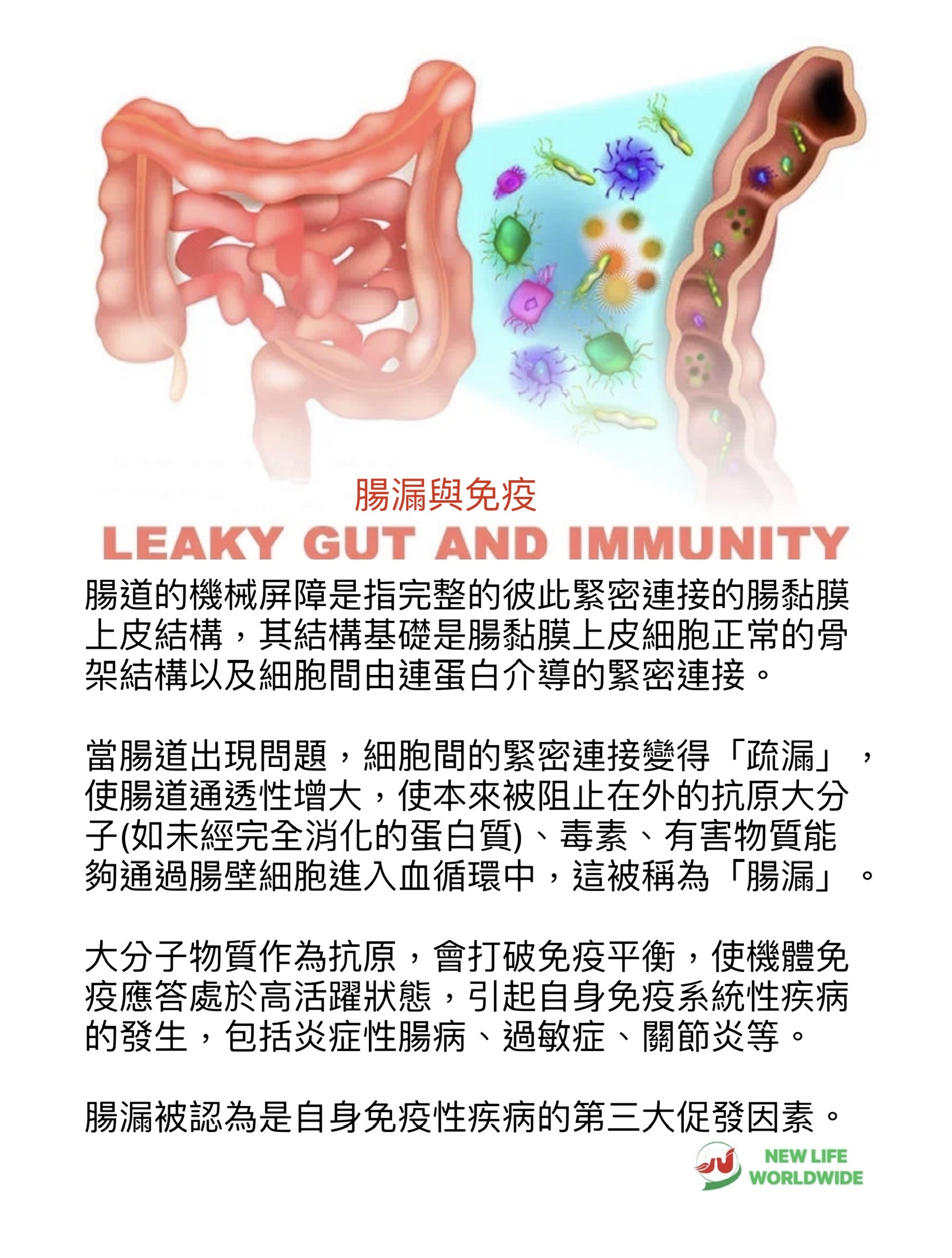When there is a problem in the intestinal tract, the tight junctions between cells become "leaky", which increases the intestinal permeability, allowing the antigen macromolecules (such as incompletely digested proteins), toxins, and harmful substances that were originally blocked to be released. Entering the blood circulation through the cells of the intestinal wall is called "leaky gut".
As antigens, macromolecular substances can break the immune balance, make the body's immune response in a highly active state, and cause the occurrence of autoimmune system diseases, including inflammatory bowel disease, allergies, arthritis, etc.
Leaky gut is considered to be the third largest contributor to autoimmune diseases.


